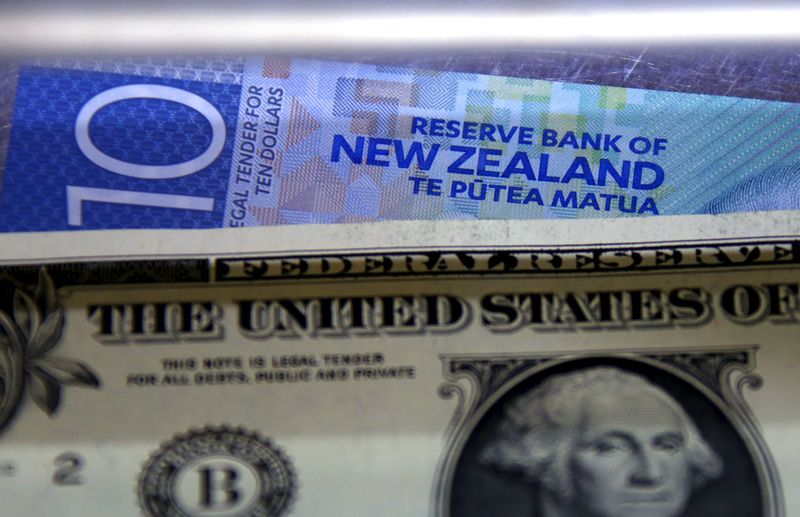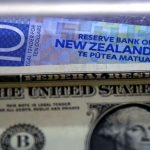
The New Zealand dollar was an exception, rising sharply after the Reserve Bank of New Zealand struck a somewhat hawkish tone in its May meeting.
But cooling optimism over China and fears of high-for-longer U.S. interest rates kept most regional currencies moving in a tight range. Cautious overnight statements from Fed officials also kept sentiment subdued.
The New Zealand dollar’s NZDUSD pair surged as much as 0.9% to an over two-month high on Wednesday, after the RBNZ flagged delays in any potential interest rate cuts due to sticky inflation.
The RBNZ kept its official cash rate steady as widely expected. But it said that sticky inflation- particularly due to tight labor conditions and high service prices- was likely to delay any potential plans to cut rates. Bloomberg data showed traders pricing in cuts later in 2025.
Still, the RBNZ said that inflation was easing, albeit at a slower pace, and that price pressures were likely to fall within its 1% to 3% target range by end-2024.
The dollar index and dollar index futures steadied in Asian trade on Wednesday after clocking some overnight gains. While the greenback was still nursing losses from last week, it recovered some lost ground this week as Fed officials kept up their warnings that more confidence was needed to begin trimming rates.
To this end, the minutes of the Fed’s late-April meeting, due later on Wednesday, were now awaited for more cues from the central bank.
Most Asian currencies tread water in anticipation of these cues. The Japanese yen’s USDJPY pair showed persistent weakness in the yen, rising 0.1% and remaining well above 156 yen.
Soft trade data from Japan- which showed disappointing exports and imports for April, as well as a bigger-than-expected trade deficit– also weighed on the yen.
Key Japanese purchasing managers index data for May is due on Thursday.
The Chinese yuan’s USDCNY pair moved little and remained in sight of a six-month high, as traders awaited more cues on Beijing’s stimulus measures and the Chinese economy.
The Australian dollar’s AUDUSD pair was flat, with PMI readings for May also due on Thursday.
The South Korean won’s USDKRW pair fell 0.1% as data showed a mild pick-up in producer price index inflation in April.
Market holidays in Singapore, Malaysia and Thailand kept tradings volumes dull across Southeast Asia.
To read the full article, Click Here

